Light Nights, Sensor City
Light Nights
Last night was Light Night here in Liverpool, which is a free one-night festival of arts and culture spread across the city. And what a lovely evening it was:
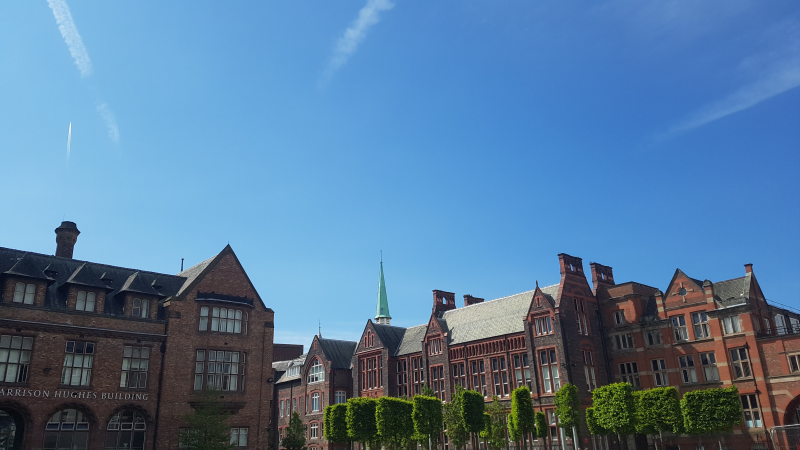
Having only just moved here, I’ve never been to a Light Night before. Oh how I’ve missed out!
I was running an outreach event, so I didn’t get to see anything outside of where I was (more on that later) but from looking at the pictures on the Light Night Twitter feed , there were some fantastic things going on all over Liverpool.
Having always been fascinated by Ancient Egypt, I wish I’d been able to go to the talk about mummification. That being said, I had tons of fun myself, talking to people about autonomous robots!
Sensor City
The outreach event I was running was in Sensor City, which is a collaboration between the University of Liverpool and Liverpool John Moores University for helping academia and industry to work more closely. Also, the building looks really funky:
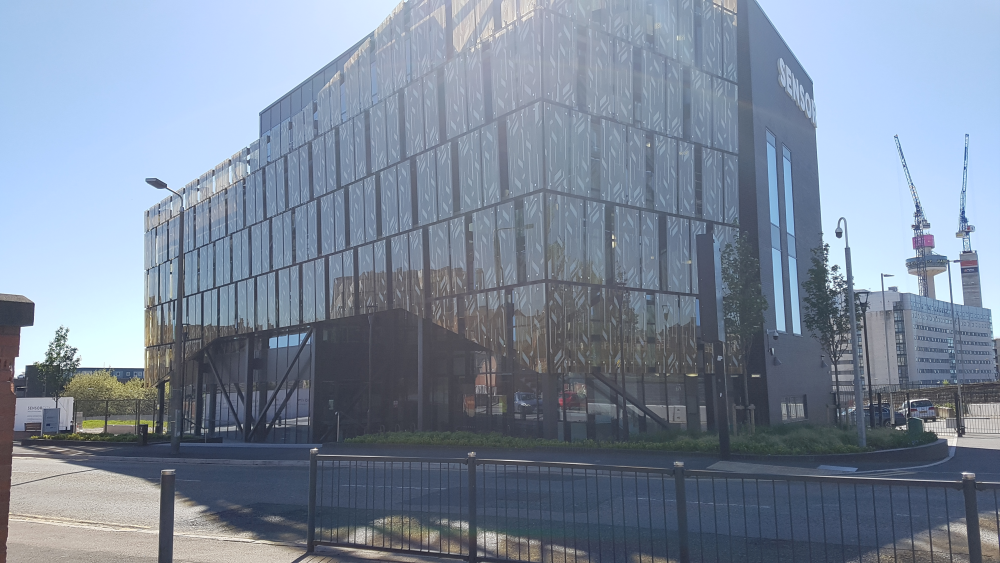
Aside from my little stand, Sensor City was hosting a range of other fascinating technology events for Light Night.
Next to me was a stand with a virtual reality museum:
Interested in virtual reality? @DigiartEU are here showcasing their virtual anthropology digiart museum and drone technology! @LightNightLpool @livuni #VR #LightNight pic.twitter.com/QGs5bTUobT
— Sensor City (@SensorCityUK) May 18, 2018
There was also this brilliant student-built race car:
@LJMUeRacingTeam showcasing their car, LJMU16, it was built purely by students to compete at @FormulaStudent in 2016. Come say hello to the them and ask them about their new electric car! #LightNight pic.twitter.com/Wq9KiJuKRv
— Sensor City (@SensorCityUK) May 18, 2018
We even managed to feature on the Sensor City Twitter feed as well:
@Mattluckcuck from @legorovers exploring the robots of the future here at @LightNightLpool #LightNight @LivUni pic.twitter.com/NVT1IHSYC1
— Sensor City (@SensorCityUK) May 18, 2018
Which nicely leads me on to the Lego Rovers event that I was running.
Lego Rovers
Lego Rovers is a science outreach activity developed by Dr Louise Dennis at the University of Liverpool. Quoting from the Lego Rovers website, children get to “navigate their own space rover, see the effect of the time delay between the Earth, the Moon and Mars, and experiment with automation rules based on concepts from artificial intelligence programming.”
I arrived with all the required kit, and before too long, me and the robots were ready to go:
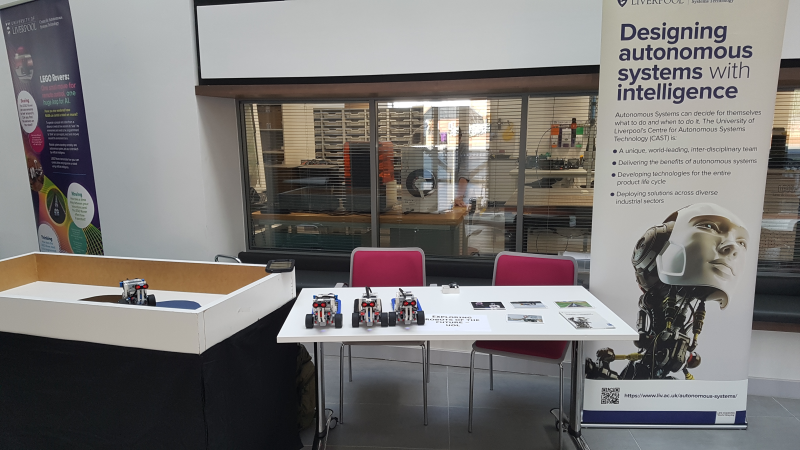
Before the doors opened at 5pm, me, Ruchi, Williamina, and Margret were waiting:
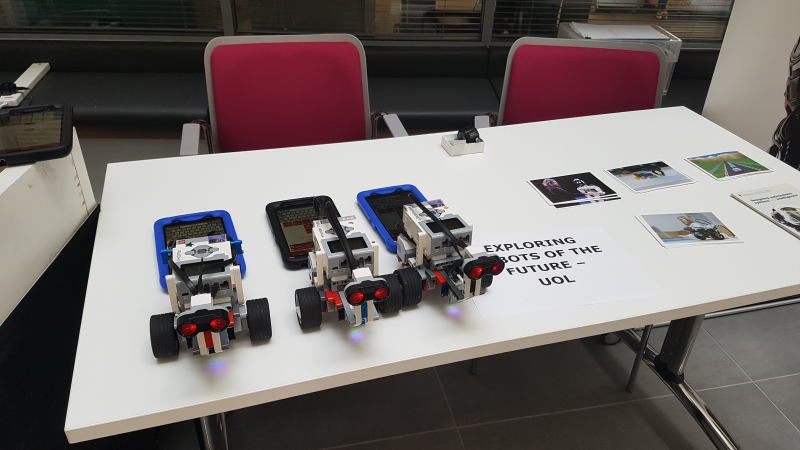
And Ada was off searching for water:
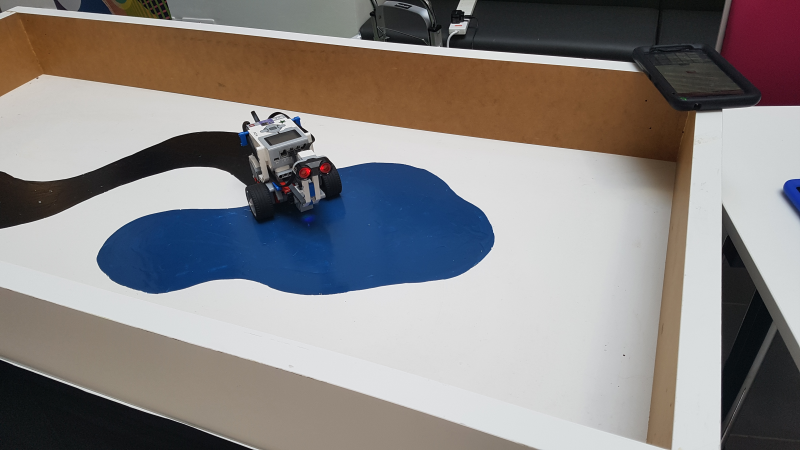
Using these robots, and the programs built Dr Louise Dennis, I got to explain to curious minds – both young and old – how and why robotics research is focussing on artificial intelligence that can explain why it made a particular decision. Lots of people got to remote control the robots, then I added in a delay of 1.3 seconds to simulate their robot being on the moon. Seeing how much more difficult this was, we got to talk about how we program autonomous robots, which can make some choices for themselves. I also got to discuss parts of my research, which looks at ways of verifying the programs before we put them on the robot.
A lot of people asked about the practical applications of autonomous robotics. The work I’m involved in is looking at nuclear decommissioning, robots going offshore, and robots on other planets; all hazardous situations for humans, so putting robots there instead helps keep us safer. Autonomous systems are also being developed for driverless cars. Obviously with the sorts of problems in recent news reports about driverless cars, the technology still needs more development before it’s ready to cope with driving on the roads.
I was really pleased at how enthusiastic, curious, and insightful the visitors were. So many people wanted to know more about artificial intelligence and robotics. It made it very easy to stay up-beat late into the night.
As well as the Lego Rovers activity and the research I’m involved in, I also got to talk about:
- NASA’s Mars Rovers (I’d highly recommend looking through the pictures from Spirit and Curiosity )
- Flying Drones on Mars
- Driverless Cars
- Programming in General
- What is Artificial Intelligence?
- What is Intelligence!?
- Swarm Robots
- Code Clubs (which you read more about on their website, or my previous posts here and here)
- The Fast-Paced Change in Technology
- Ada Lovelace the first computer programmer
- And even a Conversation Spanning Gender, Class, and Education!
I had a lot of fun, but I definitely need to rest my voice for a day or two!
My thanks go to the staff at Sensor City, who kept me in tea and popcorn for the night, and to David Copley from LCR4.0 who helped my take the kit back to the office after the event!